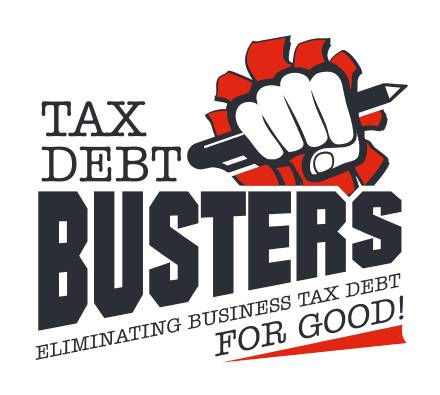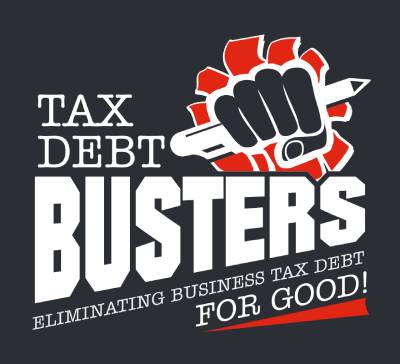
Tax Debt Issues are on the Rise
Tax debt has become a real issue for business owners. Now that the Government’s JobKeeper and Cashflow Boost assistance schemes have finished, we are already seeing a dramatic increase in both Tax Office audit activity and also debt collection, presumably in an effort to recoup some of what was spent during Covid.
In my opinion, this will quite quickly bring to a head the issue, which will affect way more businesses in Australia than Covid did……Tax Office Debt.
Did you know that small businesses owed the Tax Office $23 Billion prior to Covid?
That’s small business only.
There are currently 2,065,000 small businesses in Australia, so that’s over $10,000 worth of Tax Office Debt for every small business in Australia.
Let that sink in for a minute…. tax debt issues are a very real problem……and tax debt is growing exponentially yearly.
So, how did we get here?
The rot first started in July 1992 when the government introduced mandatory Employee Superannuation to be paid by employers.
It then ramped up a notch in July 2000 when the GST system was introduced, a system which forced businesses to charge, collect and remit tax on behalf of the Government.
And this is where the issue lies. Small businesses don’t have the resources available to them that large corporates have. The small business owner has been charged with funding their employees’ retirements via superannuation and collecting the tax payable on their employees’ wages via PAYG Withholding as well as collecting the GST on behalf of the Government.
The small business owner usually has to take on the financial burden of hiring an accountant to assist with this task because if they calculate their obligations incorrectly or are even a day late in lodgement or payment, there can be significant penalties and interest levied.
Further still, the Government is making it increasingly difficult for businesses to structure out of Tax Office Debts. Whilst an Income Tax Debt currently remains the company's debt, did you know that unpaid employee superannuation automatically becomes a liability of the company director and PAYG Withholding, and now GST can become the liability of the company director if certain criteria are not met?
This means, and this is really important, that if your business can’t pay its Tax Office debts, you can become personally bankrupt and lose all of the wealth you have built over the years.
I’ve seen this lead to mental health issues, marriage breakdowns, and suicide.
I personally reckon it’s a really unfair system that stacks the odds against the small business owner but it’s the one we have to deal with.
What is happening inside small businesses so they cannot pay their Tax Office debt on time?

The way I see it, there are five main causes:
1. Lack of Profit
When a business is not profitable for any period of time, cash problems obviously follow, and payment of taxes is often the first thing to fall behind. The default response is, “I’ll work harder to make the business profitable and then pay that back over the next couple of months”. However, in my opinion, this rarely, if ever works.
2. Poor Cashflow Management
A business can be profitable and still lack cash flow due to a number of issues. Examples would be if customers owe the business significant money outside payment terms or if there is way too much stock in the warehouse. These issues seriously affect cash flow and the ability of the business to pay its tax debt.
3. Irresponsible Spending of Business Cash
This occurs when the business owner hasn’t planned for the future cash needs of the business and spends cash now, which is required to pay Tax Office Debt down the track. This is often caused by the “Bank Account and Gut Feel” type of business management.
This is where you go “I have this much in the bank and this amount to come in, and I need to spend that amount”. The issue is that even the best at this method can only predict out about a month, which isn’t nearly enough given that BAS and super payments work mostly quarterly.
4. Overspending of Personal Money
We see this all the time. This is where the business owner personally spends more than the business makes. You might think this would only apply to poorly performing businesses, but that isn’t necessarily true. For example, a business might net $300,000, which is pretty good, but if the owner spends $400,000 on their lifestyle, this will inevitably lead to cashflow issues within the business.
5. Undercapitalisation
This is one of the most common causes in new businesses and those experiencing rapid growth and is where the business is operated with no working capital, and the Tax Office is used as a bank.
So, that’s what causes Tax Debt issues, but what should you do if you have a Tax Debt?
From my experience, small business owners wait to do something about their tax debt until it is too late.
I would suggest that if you have had two quarters where you haven’t been able to pay your BAS on time, you have a problem and need to act immediately.
I would further suggest that if you have gone to your accountant to discuss a tax debt issue and they have fobbed you off with a payment arrangement, you need to find someone else to help you.
To my way of thinking, that is like putting a band-aid on cancer. A payment arrangement doesn’t fix whichever of the five causes of Tax Debt applies to your business. So the chances of you miraculously being able to pay future Tax Debts and pay off the outstanding debt is slim to none.
This is a steep and slippery slope to financial ruin.
Let me give you an example of why fixing the cause is so important. A few years ago, I got a new client who owed the Tax Office around $200,000. We worked through his business to find out that his debtors were way too high and his prices were way too low, leading to poor profitability and cash flow.
We helped him collect most of his debtors and implemented a price increase project which fixed the issue over the following six months and allowed him to repay his Tax Office Debt.
The sad part of it was that he had borrowed $200,000 on his mortgage two years earlier to repay a Tax Office debt, but because he didn’t fix the issue, he ended up right back where he started very quickly.
He could have saved himself two years and $200,000 by fixing the cause rather than the symptom.
My Checklist
For getting out of the Tax Debt issue and ensuring that you never get into that position again is as follows:
- Ensure that you are structured correctly, especially in the area of directorship. Given the ease with which the tax debt can be transferred to the director personally, only one of you should ever act as the director of the trading entity, and the other one should own all of the assets in their name or as trustee of trusts. I’m amazed at how often I see both spouses named as directors of companies with huge risks and no benefits. So, for example, I’m almost certainly the poorest person in this room. I’m the director of our various businesses, but I literally own no assets in my name. And that’s exactly how I want it to be.
- Always pay your employee superannuation on time, no matter what. Not paying your employee super on time has some very bad tax consequences, and outstanding super automatically transfers to you personally, so ensure that these are always paid on time.
- Always ensure you lodge your BASs on time, even if you can’t pay them. Too many small business owners don’t lodge their BASs because they can’t pay them. However, lodging your BASs on time makes it more difficult for the Tax Office to transfer the PAYG Withholding and GST to you personally.
- Act sooner rather than later. Time is your friend when it comes to dealing with the Tax Office. It is never too early to fix a Tax Debt issue.
- Get professional help. Contact your accountant or, if he can’t or won’t help you, find another accountant who will help you to identify which of the five causes applies to your business and take action to fix that underlying problem.
- Open a Tax Account with a separate bank that has no access card and transfer funds on a regular basis which will cover all of your taxes and super. Your accountant can and should help you to calculate this. Don’t touch this money except for paying tax and super.
- Keep your business and personal finances separate. Don’t live out of the business bank account. Pay yourself a weekly wage or drawing and top that up with quarterly dividends depending on the performance of the business. This will help to ensure that you are living within the means your business can afford.
- Budget properly. Stop managing your business via the Bank Account and Gut Feel Method. You need to have your finger on the pulse of your business’ finances. Find a good accountant who will help you with this.
And lastly, for no reason... - Negotiate a payment arrangement with the Tax Office. There is a real skill in dealing with the Tax Office, and I recommend you engage your accountant to do this for you.

